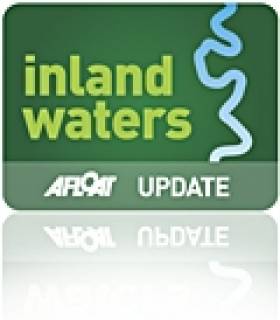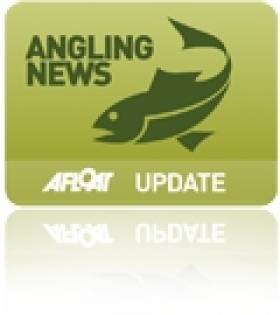Displaying items by tag: Loobagh
#biodiversity – Students from Kilfinane National School gathered along the banks of the River Loobagh in Limerick yesterday (Monday) as part of a new environmental education initiative being administered by Limerick City & County Council.
'StreamScapes Loobagh' is aimed at promoting the aquatic and biodiversity resources of the River Loobagh Catchment in south County Limerick.
The visit by the school children was followed later in the day by a visit to the river by members of the local community. The Kilfinane event is one of three taking place over the coming weeks with others scheduled for Ardpatrick on Monday 11th May and Kilmallock on Monday 18th May.
"The children and their teachers really enjoyed their exploration of the River Loobagh this week. Amongst the interesting wildlife species identified and documented on the stretch of river by the Well Road were salmon and trout fry, juvenile glass eel, or "elvers", - all the way from the Saragossa Sea - and crayfish. They also found a range of stonefly and mayfly nymphs and cased caddis fly larvae which points towards a very high quality river environment at that location," said Anne Goggin, Senior Executive Engineer with Limerick City and County Council.
"We are utilising the award-winning 'StreamScapes' programme to enable communities of the River Loobagh to learn about the important links between high status local water quality and human health, thriving socio-economy, higher value agricultural produce and biodiversity. We are excited to be producing this programme and encourage people to engage," added Ms. Goggin.
The initiative is backed up by a dedicated local environmental booklet which is being distributed to communities in the Loobagh catchment area.
Upcoming Community Evenings:
- Mon 11th May, Ardpatrick: meet at 7pm in church car park. Visit to river followed by meeting and refreshments in the community hall.
- Mon 18th May Kilmallock: meet at 7pm in Car Park of Deebert House Hotel. Visit to river followed by meeting and refreshments afterwards in the hotel.
Inland Fisheries Ireland Monitors River Loobagh Pollution
#angling – Inland Fisheries Ireland (IFI) is today continuing to monitor an incident of pollution on the River Loobagh in Limerick, which resulted in an extensive fish kill earlier this week.
On 4th August 2014, IFI received a report from local anglers in Kilmallock that the River Loobagh at Riversfield Bridge, near the Limerick County Council water treatment plant, was in a polluted condition and dead fish could be seen. The River Loobagh is an important fishery, primarily for brown trout, but also for salmon which seemed to be returning to the river in small numbers.
A discharge of effluent into the River Loobagh was located, and the source was traced to an over ground steel slurry tank on a nearby farm. Once IFI contacted the farm owner, works immediately proceeded to prevent further discharge and the flow of effluent was intercepted at a number of locations, effectively preventing further discharge.
A series of samples were taken which have been sent for analysis. Pending the results of the analysis a decision will be made by IFI concerning a prosecution and any other legal actions that may be warranted.
IFI staff carried out a visual inspection of the River Loobagh to determine the extent of the fish kill. Further to this, approximately 555 fish were observed to be dead, with an additional 95 fish found by the local angling club. The majority of the fish were brown trout, as well as a small number of juvenile salmon.
IFI is continuing to work with both the farmer and Limerick County Council to ensure that no further pollution can arise and that all appropriate remedial action is taken. IFI will continue to monitor the situation and ensure that any pollution risk is removed.
Inland Fisheries Ireland (IFI) has a confidential hotline number to enable members of the general public to report incidents - 1890 34 74 24 or 1890 FISH 24. This phone line is designed to encourage the reporting of incidents of illegal fishing, water pollution and invasive species.

























































